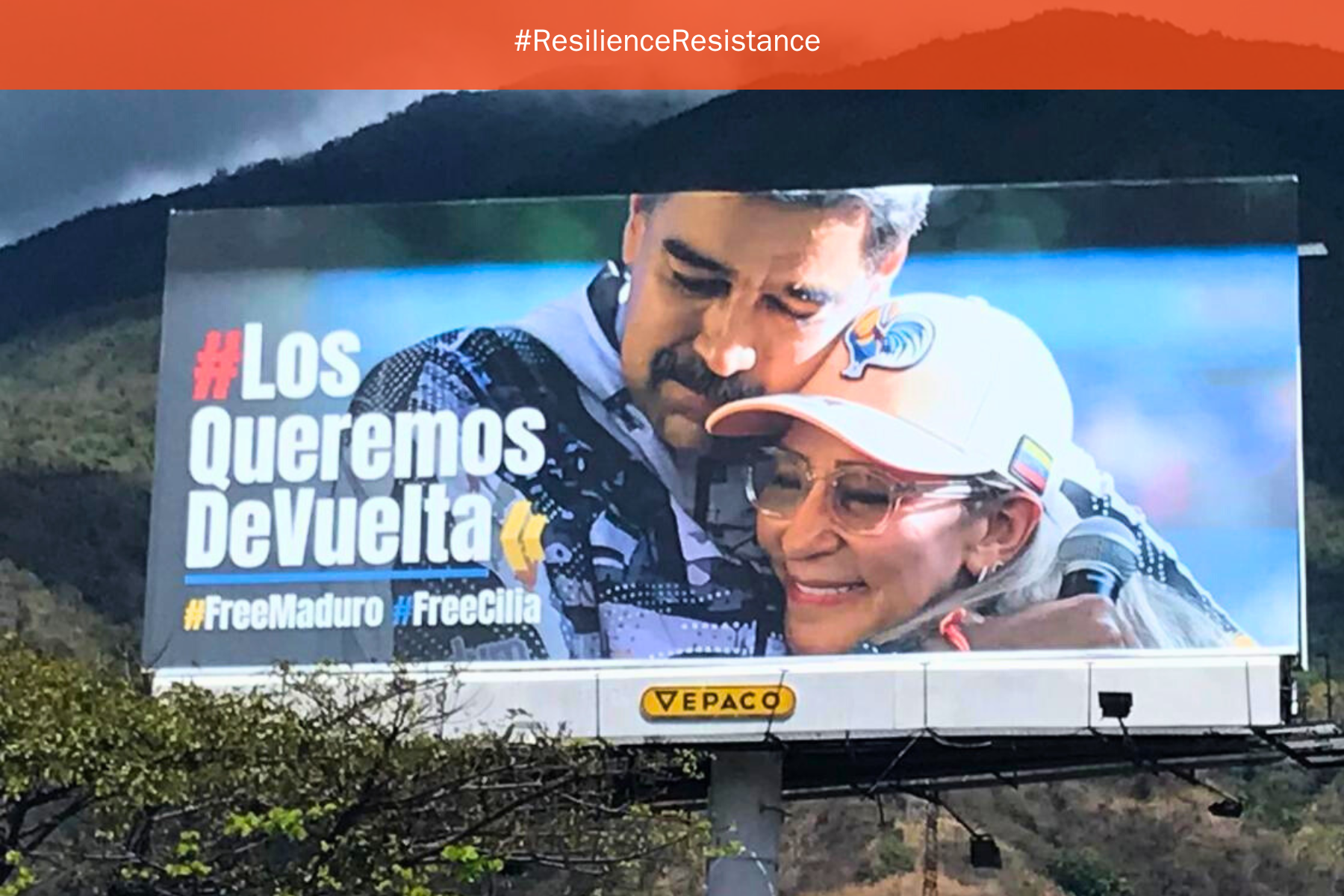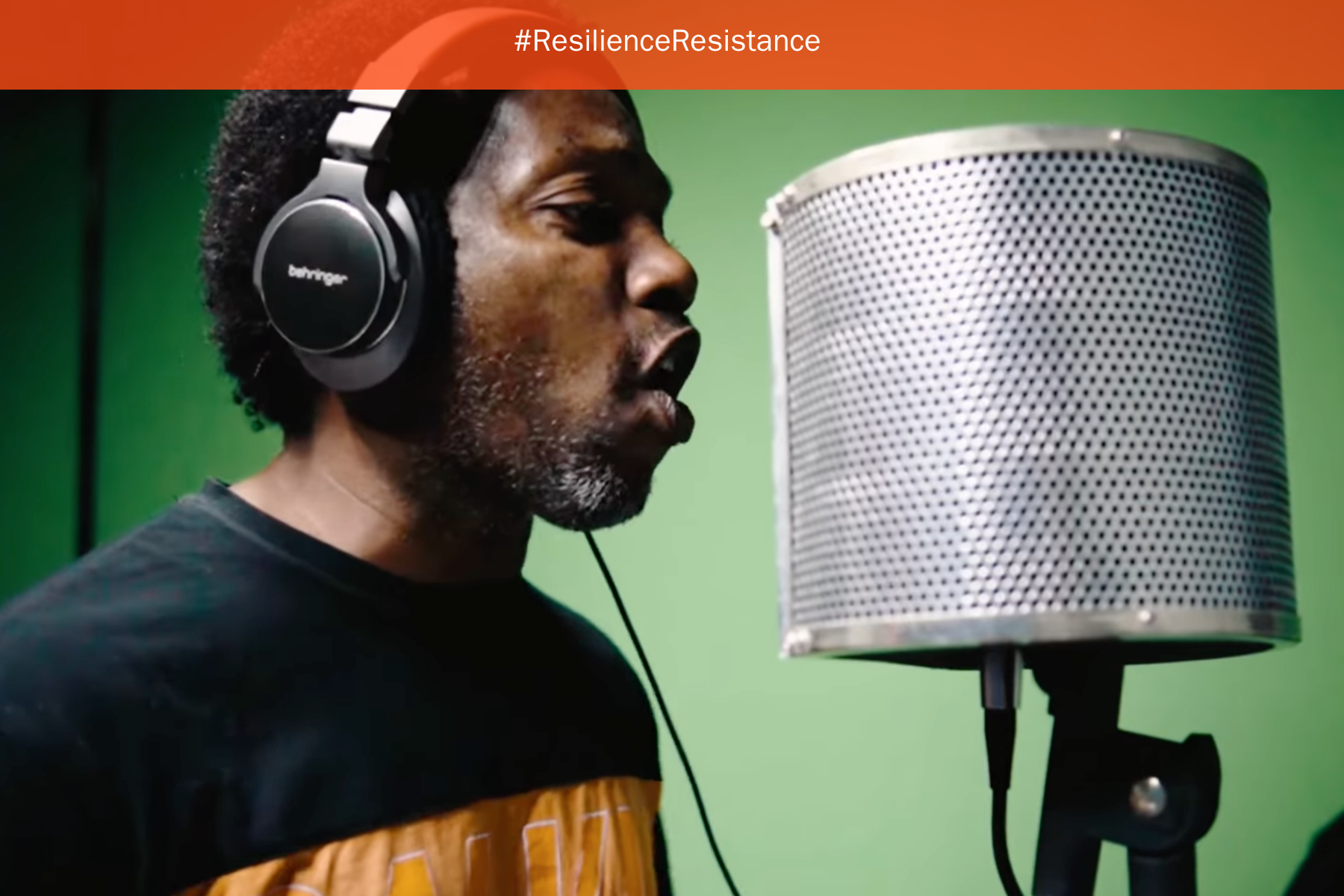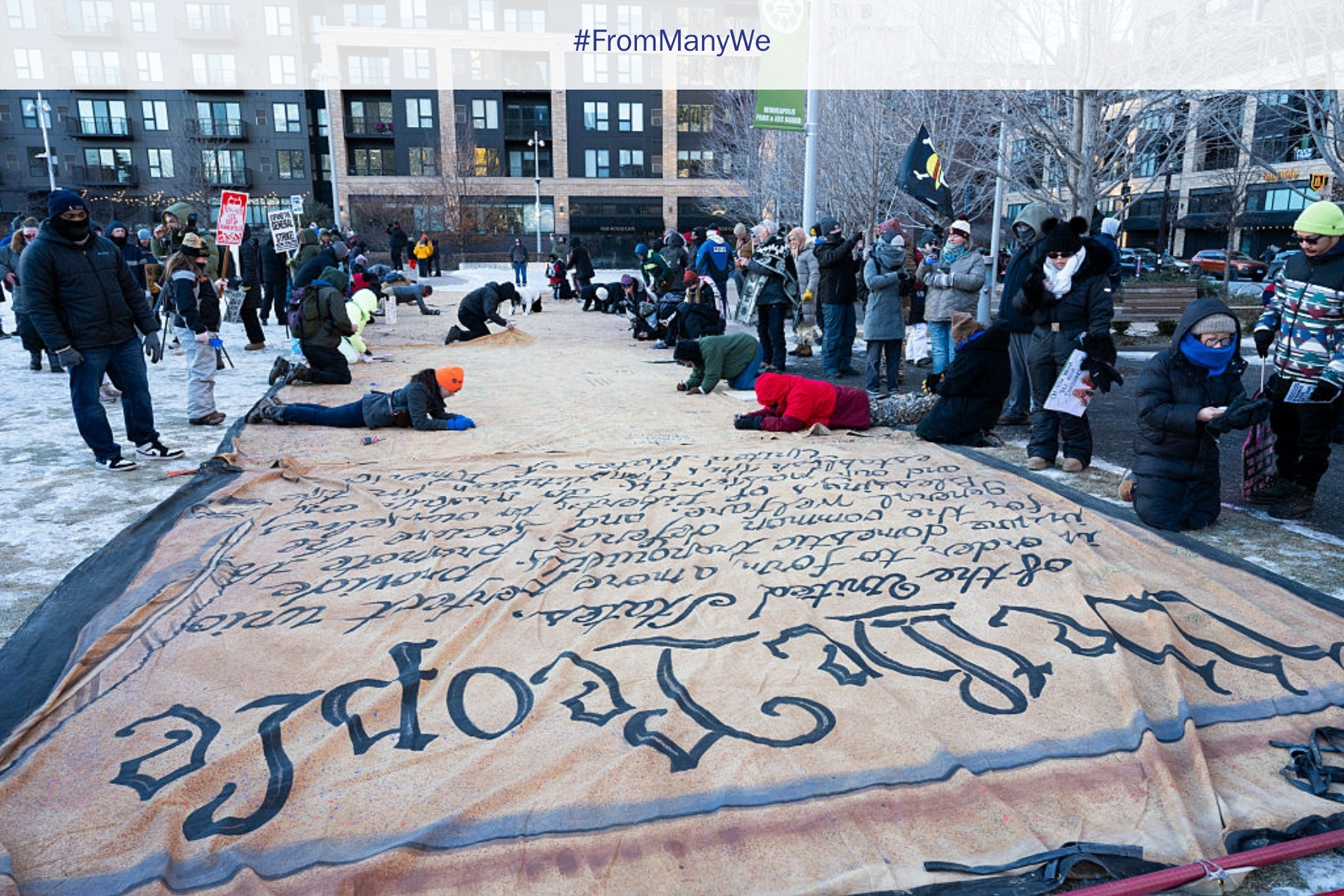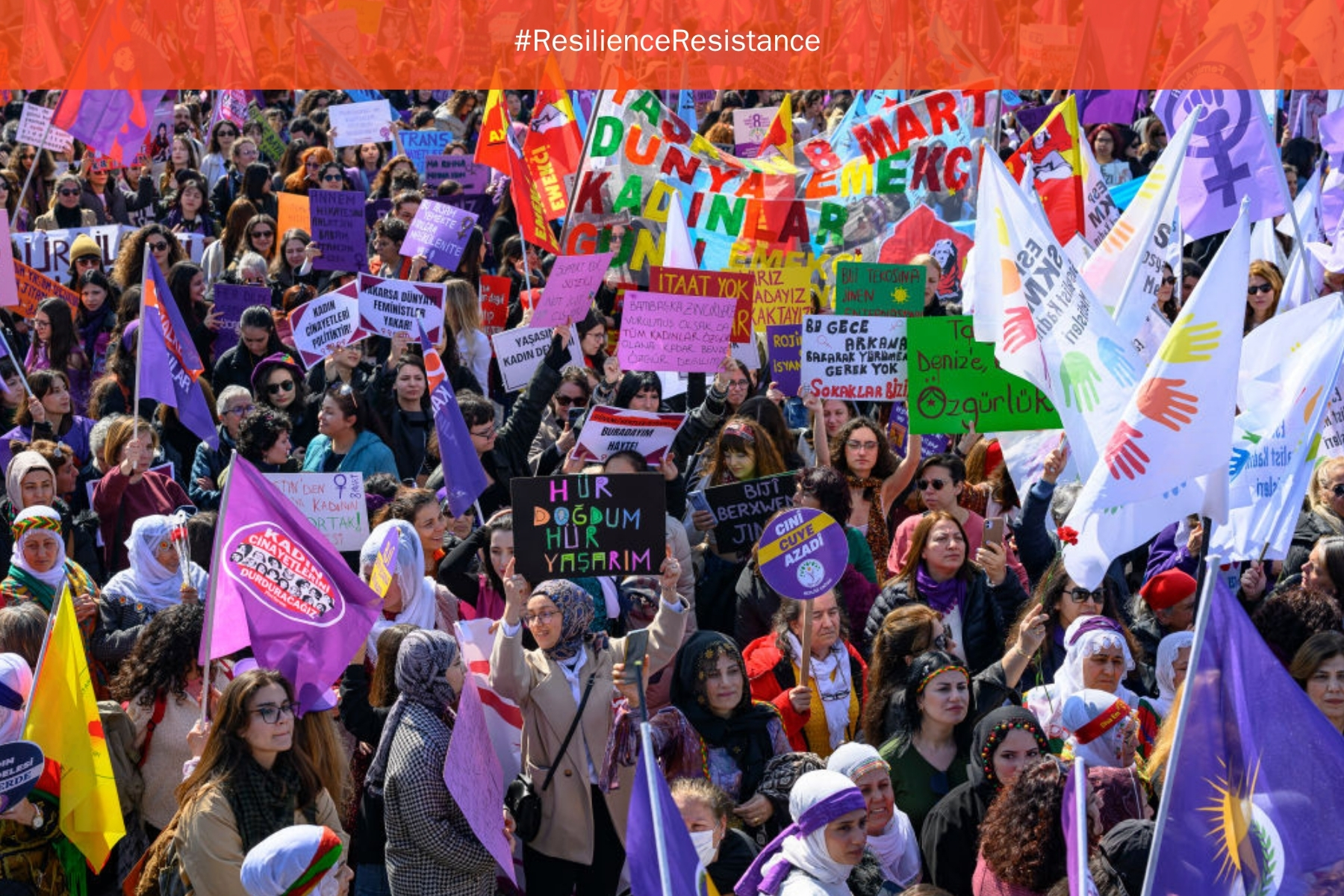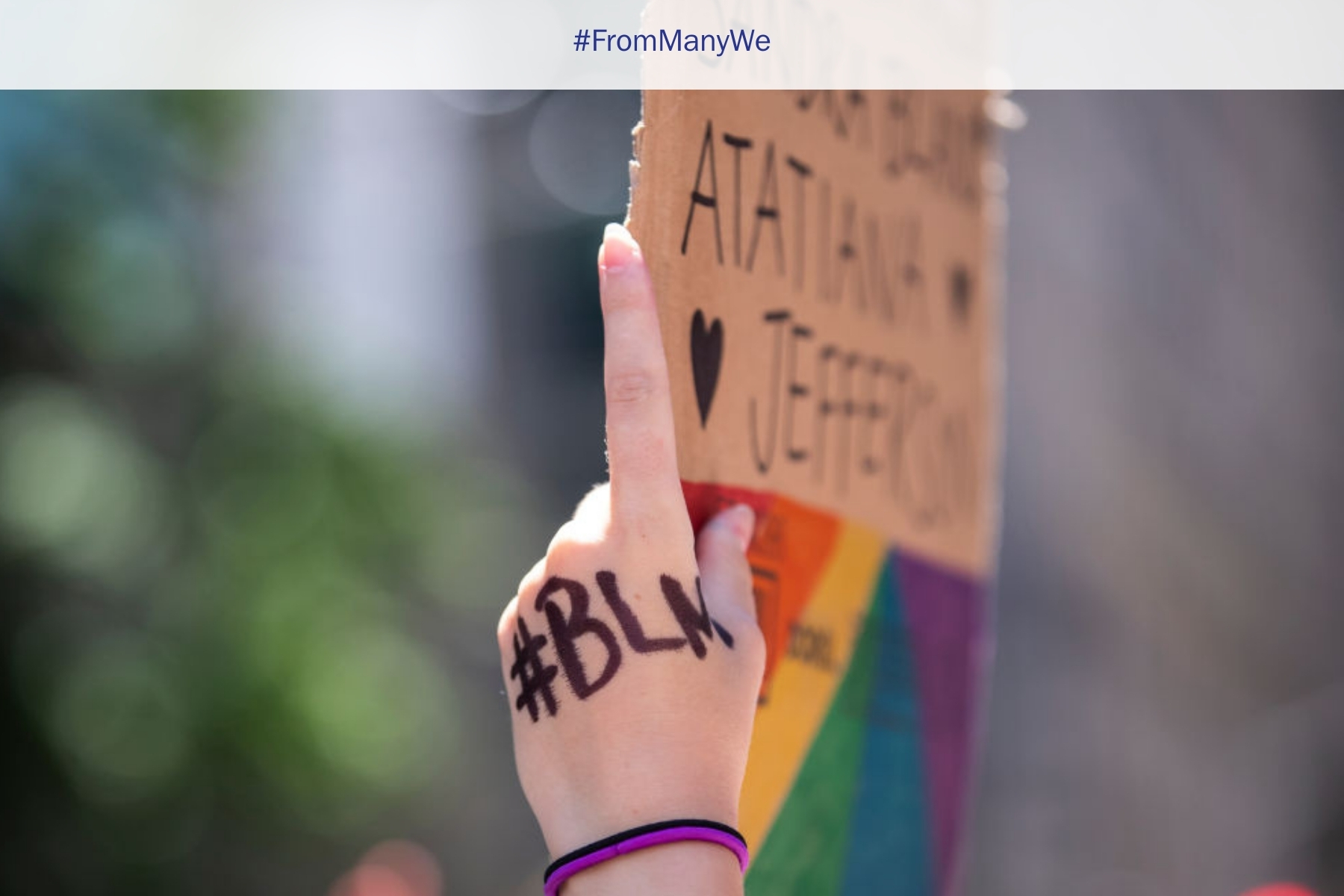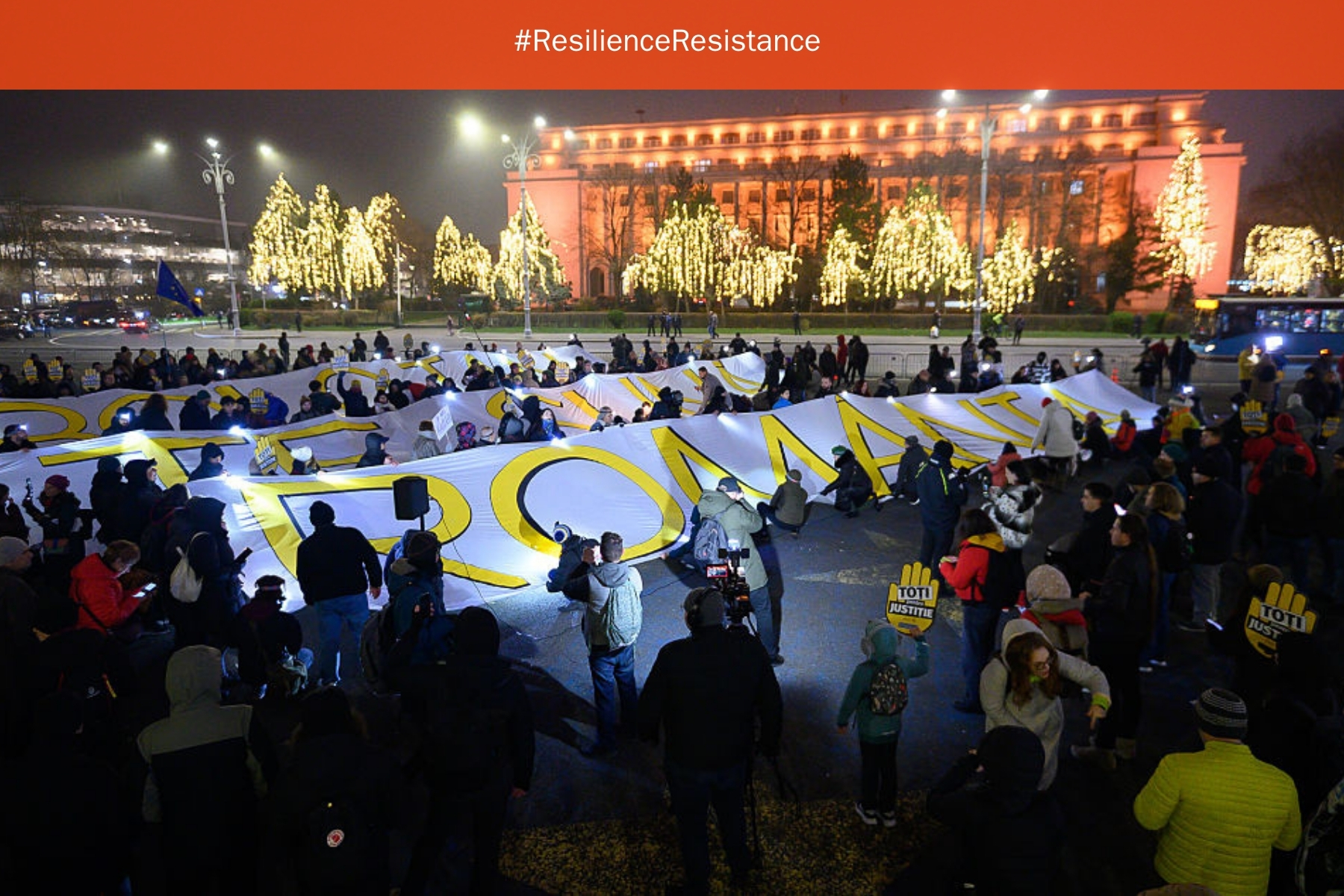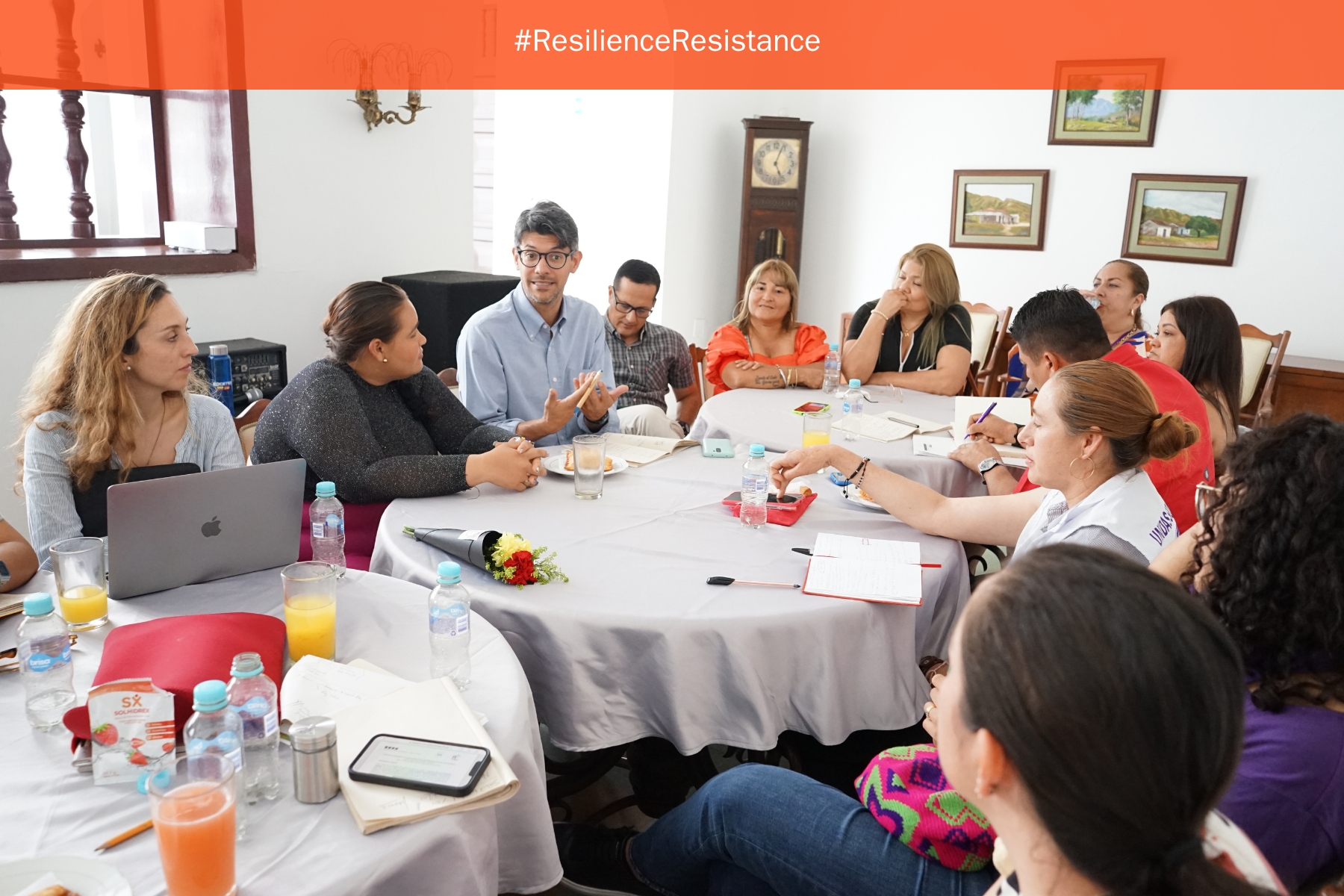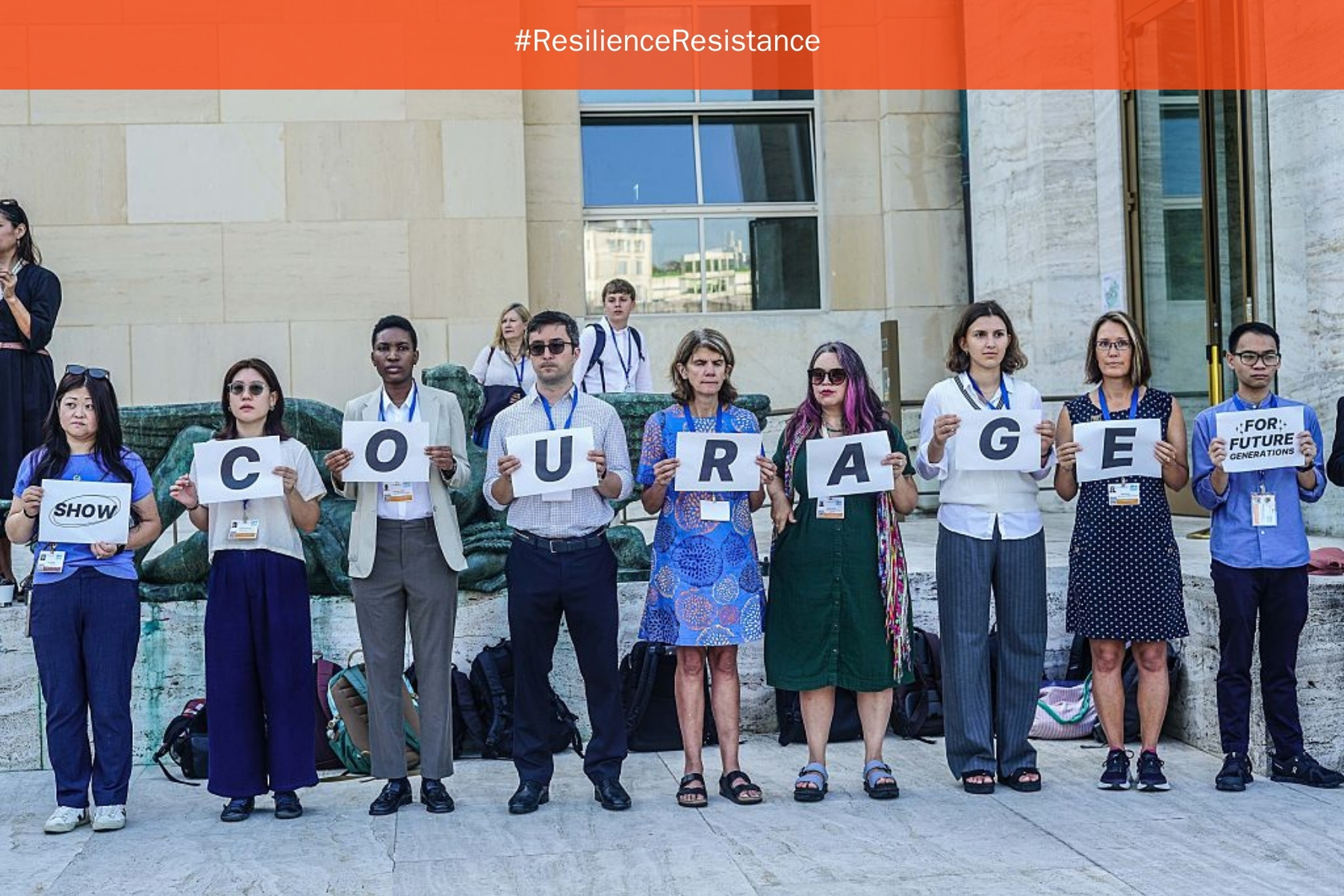A Critical Moment: Introducing the Resilience & Resistance Blog Series
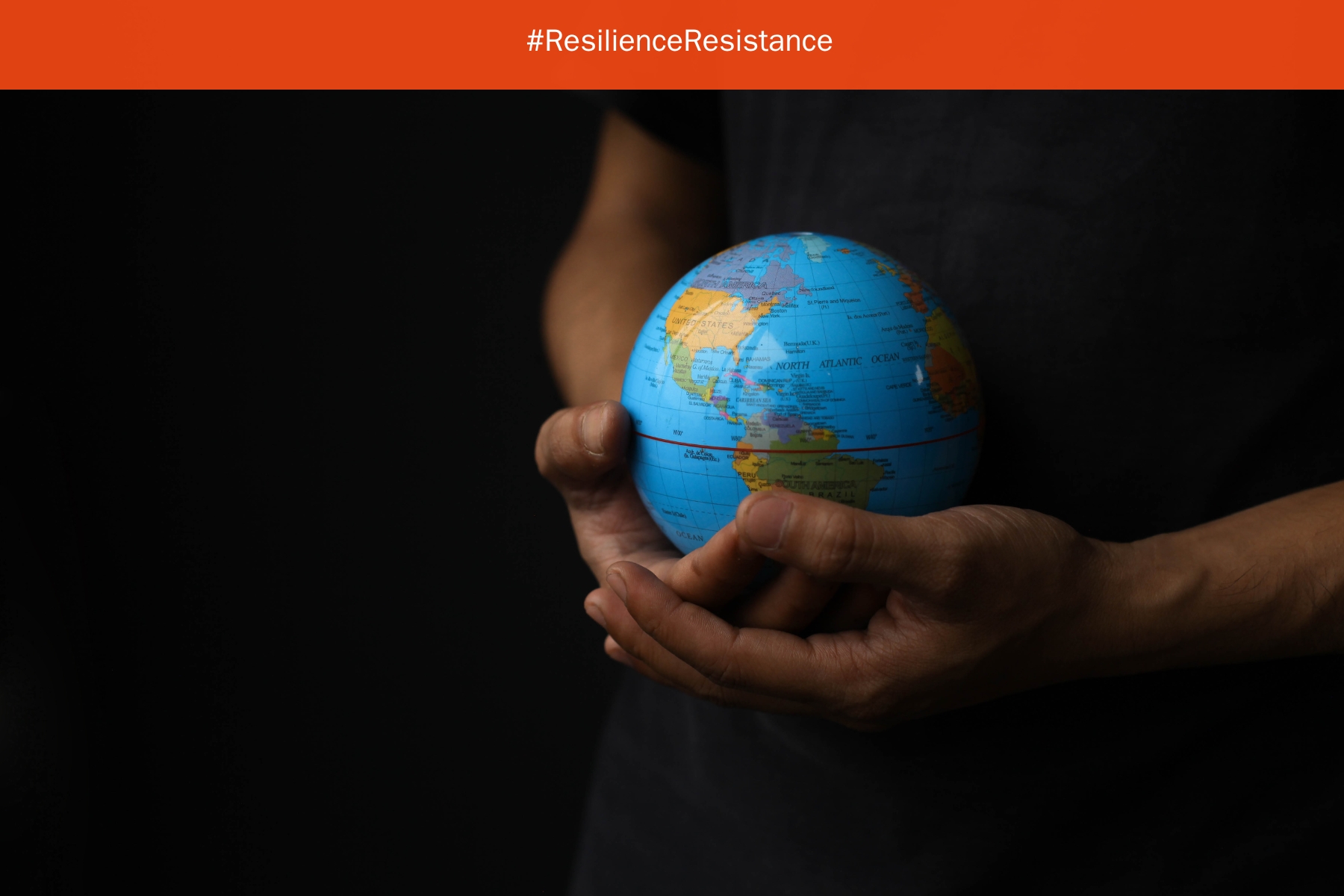
With democracy under threat at home and around the world, the Charles F. Kettering Foundation’s Democracy around the Globe focus area is launching a new blog series: Resilience & Resistance. Our aim is to help turn the tide of democratic backsliding by creating space to explore global patterns of authoritarianism, uplift courageous efforts of resistance, and reimagine democracy. This series is a platform for connecting scholars, civil society practitioners, and everyday people who refuse to concede their rights, their dignity, or their democratic futures.
There is a scene that has been widely circulated online: During the 2025 Conservative Political Action Conference (CPAC) in Maryland, Argentina’s president Javier Milei was invited on stage where he gifted a bright red chainsaw to Elon Musk, the world’s richest man and the head of the new, unofficial US Department of Government Efficiency (DOGE).
Holding the chainsaw overhead, Musk pumped his arms to thumping music while the crowd cheered. “This is the chainsaw for bureaucracy,” he announced, echoing Milei, who has regularly wielded the tool—both figuratively and literally—since first campaigning on a platform of slashing public spending in Argentina.
The scene is unsettling because of the spectacle, but the chainsaw symbolizes something equally sobering: a brash dismantling of public institutions and a fundamental disdain for the people who work in them. Then there is Musk himself, an unelected leader who spearheaded government cuts while raising grave concerns about conflicts of interest.
CPAC gatherings have become hubs for right-wing populist leaders from around the world, including Hungary’s Viktor Orbán, El Salvador’s Nayib Bukele, and Brazil’s Jair Bolsonaro. The conference has been hosted in Brazil, Hungary, Japan, Australia, Israel, Korea, Mexico, and Argentina, where some MAGA caps have been rebranded with “Make Argentina Great Again.”
The shared props and swag are simply a visible illustration of a playbook that is being translated across borders.
An Alarming First 100 Days
In the US, the new administration lost no time in asserting its “shock and awe” approach. It fired thousands of federal workers; ended programs designed to encourage diversity, equity, and inclusion; targeted vulnerable populations through government efforts to control language and police identity; froze foreign aid; and decimated departments and agencies, including the US Agency for International Development, which has caused enormous ripple effects around the globe. It has also deported more than 200 people alleged to be gang members to a notorious prison in El Salvador, arrested legal immigrants and permanent residents for engaging in campus protests, and revoked student visas in at least 32 states, while attacking the journalists and judges who question the constitutionality of the administration’s actions. Despite protests and outrage in town halls across the country, the administration asserts that it is operating under a broad, popular mandate.
In an interview with Der Spiegel, Harvard professor and KF Senior Fellow Steven Levitsky said:
What is striking about the first two months of the Trump administration is not that it reminds me of Viktor Orbán in Hungary, the Law and Justice (PiS) party in Poland, Narendra Modi in India, or Hugo Chávez in Venezuela. It’s worse. Trump and his allies have been much more openly authoritarian than any of these figures.
Rising Authoritarianism around the World
All of this is happening in the context of two decades of global democratic backsliding and rising authoritarianism. The world is now in the midst of what scholars have identified as a “third wave of autocratization.” The earlier waves (from around 1926 to 1942 and 1961 to 1977) were driven largely by military coups, foreign invasions, and autogolpes, “where the chief executive comes to power by legal means but then suddenly abolishes key democratic institutions such as elections or parliaments.” What stands out today is that leaders come to power through elections and then “gradually, but substantially, undermine democratic norms without abolishing key democratic institutions.”
In their recently released report, the Varieties of Democracy (V-Dem) Institute notes that there are “no signs of the third wave of autocratization cresting or even slowing down.” In fact, autocracies are becoming more autocratic at the same time that democracies are becoming less democratic. For the first time in 20 years, the world now has fewer democracies than autocracies, and liberal democracies are now the least common form of government.
The challenges we face today are global. As authoritarian and authoritarian-leaning actors collaborate, those working to defend democracy must also join forces to reimagine more inclusive, just, and equitable democratic societies. The latest report from Freedom House underscores the urgency of such collaboration, writing that “only sustained and coordinated action can reverse the nearly two decades of decline in global freedom and ensure that more countries enjoy security, prosperity, and all the other benefits of democratic rule.”
The mobilization of South Korean citizens, lawmakers, and civil society to protect their democracy after former President Yoon Suk Yeol declared martial law late last year offers important lessons. So too do the efforts of Brazilian civil society coalitions to counter authoritarian threats. The nationwide protests being organized across the United States are also promising. The Gen Z protests that took place in Kenya in 2024 in response to a proposed finance bill brought visibility to a powerful demographic that could play a positive role in transforming democracies across the continent. Our Democracy around the Globe team wants to highlight such examples and support efforts to encourage intentional learning and exchange across borders.
Nurturing Global Learning and Solidarity
For the Resilience and Resistance blog series, we will be inviting scholars, civil society practitioners, and democracy and human rights activists from countries around the world to help us and our readers grapple with this political moment and heed its critical warnings. This series will amplify stories of bravery and resistance as well as provide the space to learn from them. We will also be featuring stories of hope, practical insights, and transformation.
This authoritarian wave is strong, but we believe the demand for democracy—and the will to create more just, inclusive systems—is stronger. We hope to inspire and ignite action, foster transnational solidarity, and connect a movement of movements to support democratic resilience.
This is a critical moment for democracy around the globe, and it requires all of us to turn the tide.
Paloma Dallas is senior program officer for Democracy around the Globe at the Kettering Foundation.
Resilience & Resistance is a Charles F. Kettering Foundation blog series that features the insights of thought leaders and practitioners who are working to expand and support inclusive democracies around the globe. Direct any queries to globalteam@kettering.org.
The views and opinions expressed by contributors to our digital communications are made independent of their affiliation with the Charles F. Kettering Foundation and without the foundation’s warranty of accuracy, authenticity, or completeness. Such statements do not reflect the views and opinions of the foundation which hereby disclaims liability to any party for direct, indirect, implied, punitive, special, incidental, or other consequential damages that may arise in connection with statements made by a contributor during their association with the foundation or independently.
